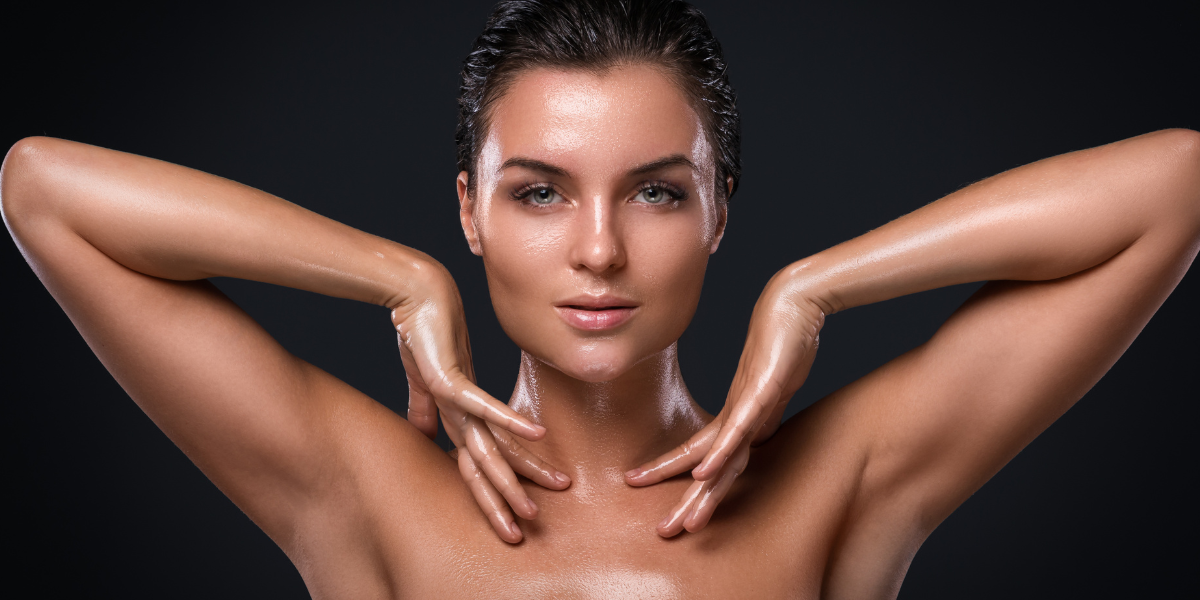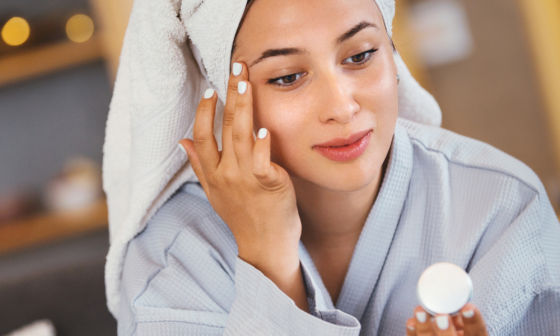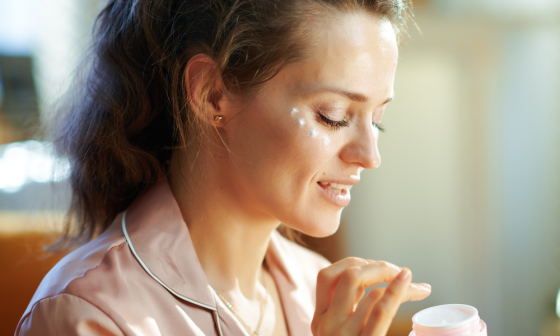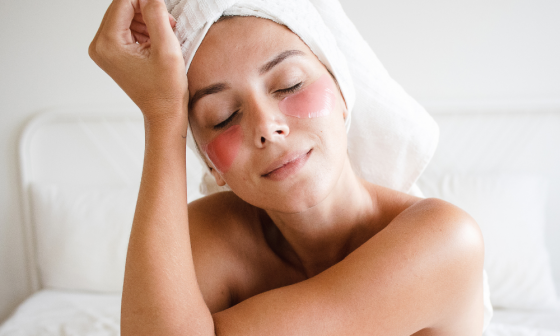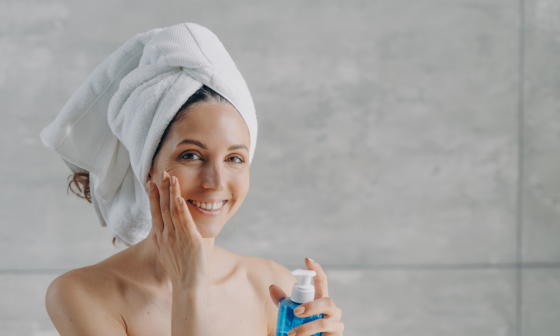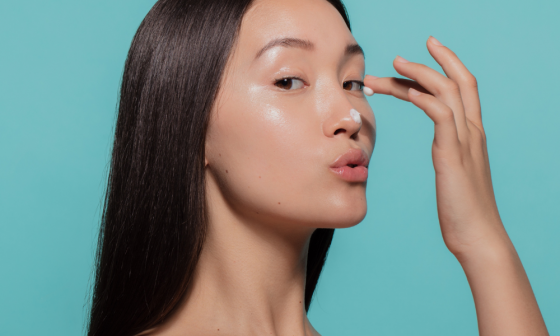Taking care of your skin should be an essential part of your daily routine if you want to maintain a healthy and glowing complexion. Skincare is not only about the products you use but also the habits you adopt. While it can be overwhelming to figure out what works best for your skin type, the good news is that you can achieve radiant skin by incorporating a few essential tips into your regimen. In this blog post, we’ll share ten tips that will help you achieve and maintain healthy and glowing skin for life.
1. Wear sunscreen daily
One of the most important things you can do for your skin is to wear sunscreen every day. Even on cloudy days or during the winter months, harmful UV rays from the sun can still damage your skin and lead to premature ageing, dark spots, and even skin cancer.
Choose a broad-spectrum sunscreen with at least SPF 30 and apply it liberally to your face, neck, and any other exposed areas of skin. Make sure to reapply every two hours or after swimming or sweating. You can also look for makeup or moisturisers that contain sunscreen for added protection.
By making sunscreen a part of your daily skincare routine, you can help prevent long-term damage to your skin and keep it looking healthy and radiant.
Our pick: COSRX Aloe Soothing SPF50 PA+++ Sun Cream 50ml
2. Exfoliate regularly
Exfoliation removes dead skin cells from the surface of your skin, revealing a fresh layer of skin underneath. This process also helps to unclog pores, reduce acne breakouts, and stimulate collagen production.
When choosing an exfoliating product, look for one that is gentle enough for your skin type and does not contain harsh ingredients like microbeads or walnut shells. Chemical exfoliants like alpha-hydroxy acids (AHAs) and beta-hydroxy acids (BHAs) are also effective in removing dead skin cells without causing irritation.
It is important to not over-exfoliate, as this can strip your skin of its natural oils and cause dryness and irritation. Aim to exfoliate once or twice a week, depending on your skin type and the product you are using.
Our pick: La Roche-Posay Ultra Fine Scrub 50ml
3. Moisturize
Moisturizing is an important step in any skincare routine. It helps to hydrate the skin, leaving it feeling soft and supple. Using a good moisturiser can also help to prevent wrinkles and fine lines, and can even help to reduce the appearance of existing wrinkles. Here are some tips for moisturising your skin:
- Choose the right moisturiser for your skin type. If you have dry skin, look for a moisturiser that is rich and creamy. If you have oily skin, look for a lightweight, oil-free moisturiser.
- Apply your moisturiser immediately after cleansing. This will help to lock in moisture and keep your skin hydrated throughout the day.
- Don’t forget to moisturise your neck and chest. These areas are often neglected but can show signs of ageing just as quickly as your face.
- Use a separate eye cream. The skin around your eyes is thinner and more delicate than the rest of your face, so it requires a special moisturiser.
- Don’t overdo it. Using too much moisturiser can actually clog pores and cause breakouts. Use a dime-sized amount for your face, and a pea-sized amount for your neck and chest.
Our pick: Clinique Dramatically Different Moisturising Lotion+ 125ml with Pump
4. Don’t smoke
One of the worst things you can do for your skin’s health and appearance is smoke. Smoking accelerates the ageing process and leads to premature wrinkles, fine lines, and age spots. Additionally, smoking restricts blood flow to the skin, leading to a dull, sallow complexion. If you’re a smoker, quitting is the best thing you can do for your overall health and your skin. Not only will it reduce your risk of developing serious health problems like cancer, heart disease, and lung disease, but it will also help you maintain a healthy, youthful-looking complexion. If you need help quitting, speak to your doctor or consider joining a support group.
5. Get enough sleep
Getting enough sleep is essential for your overall health, including the health of your skin. During sleep, your body works to repair and rejuvenate itself, and your skin is no exception. Lack of sleep can lead to dark circles, puffy eyes, and dull skin.
Try to aim for at least 7-8 hours of sleep each night. Establishing a consistent sleep schedule and creating a relaxing bedtime routine can also help you fall asleep more easily and improve the quality of your sleep.
If you struggle with getting enough sleep, try implementing relaxation techniques like yoga or meditation before bed, avoiding electronics in the bedroom, and keeping a comfortable sleeping environment. Not only will these tips improve your skin’s appearance, but they’ll also boost your overall health and well-being.
Why not try this: Aromatherapy Associates Moment of Sleep Duo
6. Eat healthy
Your skin reflects what you eat, and a balanced diet plays a significant role in maintaining healthy skin. Foods that are high in vitamins A, C, E, and K, and antioxidants can help to keep your skin glowing. Try to include more fruits and vegetables in your diet, especially dark, leafy greens, citrus fruits, berries, and avocados. Omega-3 fatty acids found in fish, nuts, and seeds can also help to keep your skin supple and hydrated.
Avoid processed and sugary foods, as they can lead to inflammation, acne, and premature ageing. Drinking enough water is also crucial to keep your skin hydrated and flush out toxins. Aim to drink at least 8 glasses of water a day, and avoid excessive caffeine and alcohol intake, as they can dehydrate your skin.
7. Limit alcohol consumption
Many of us enjoy a nice glass of wine or a cold beer after a long day, but did you know that alcohol can have negative effects on your skin? Drinking too much alcohol can dehydrate your skin, leaving it looking dull and tired. It can also exacerbate skin conditions such as acne and rosacea.
If you want to maintain a healthy and glowing complexion, it’s important to limit your alcohol consumption. This doesn’t mean you have to give up drinking altogether, but it does mean you should be mindful of how much and how often you’re consuming alcohol.
Here are a few tips to help you limit your alcohol consumption:
- Set limits: Decide ahead of time how much you’re going to drink and stick to it.
- Drink slowly: Sipping your drink slowly can help you enjoy it more and prevent you from consuming too much too quickly.
- Alternate with water: For every alcoholic beverage you have, drink a glass of water to help keep you hydrated.
- Avoid sugary cocktails: Sugary drinks can be high in calories and can also contribute to dehydration.
8. Use a cleanser
When it comes to maintaining a healthy and glowing complexion, cleansing your skin is an absolute must. Using a good cleanser will help to remove dirt, oil, and makeup from your skin, allowing it to breathe and function properly.
But not all cleansers are created equal. When choosing a cleanser, it’s important to look for one that’s suited to your skin type. If you have oily skin, a gel or foam cleanser may work best, while those with dry skin may benefit from a cream or oil-based cleanser. When cleansing your skin, be gentle and avoid harsh scrubbing or rubbing. Use lukewarm water to rinse off the cleanser, and pat your skin dry with a soft towel.
It’s also important to note that you don’t need to wash your face excessively. Over-washing can strip your skin of its natural oils and leave it feeling dry and irritated. Aim to cleanse your skin once in the morning and once in the evening, and after any strenuous activity that causes sweating.
Our pick: Eve Lom Cleanser 200ml
9. Treat your skin gently
Taking care of your skin can sometimes feel like a balancing act. You want to be sure to give it the care and attention it deserves, but you don’t want to do anything that could harm it or cause irritation. That’s why it’s essential to treat your skin gently.
One of the easiest ways to do this is by using products that are specifically formulated for your skin type. Whether you have dry skin, oily skin, or a combination of both, using products that are designed to work with your skin’s natural balance can help keep it healthy and glowing.
Another way to treat your skin gently is by avoiding harsh ingredients that can strip it of its natural oils and moisture. Look for products that are free from sulphates, parabens, and fragrances. These types of ingredients can be drying and irritating, especially if you have sensitive skin.
By treating your skin gently, you’ll be giving it the care it needs to stay healthy and radiant.
10. See a dermatologist regularly
While following these essential skincare tips can greatly improve the health and appearance of your complexion, it’s still important to see a dermatologist regularly. They can provide personalised advice on any specific skin concerns you may have, such as acne or signs of ageing.
Regular check-ups with a dermatologist can also help detect early signs of skin cancer, which can be life-saving. Your dermatologist can provide a thorough skin exam and recommend any necessary treatments or preventative measures.
Additionally, seeing a dermatologist can provide insight on the most effective skincare products for your skin type and specific concerns. They can recommend prescription-strength products and provide guidance on proper usage.
Don’t wait until you have a major skin concern to see a dermatologist. Make regular appointments a part of your overall skincare routine and preventative health plan. By doing so, you’ll be taking proactive steps to keep your complexion healthy and glowing for life.
